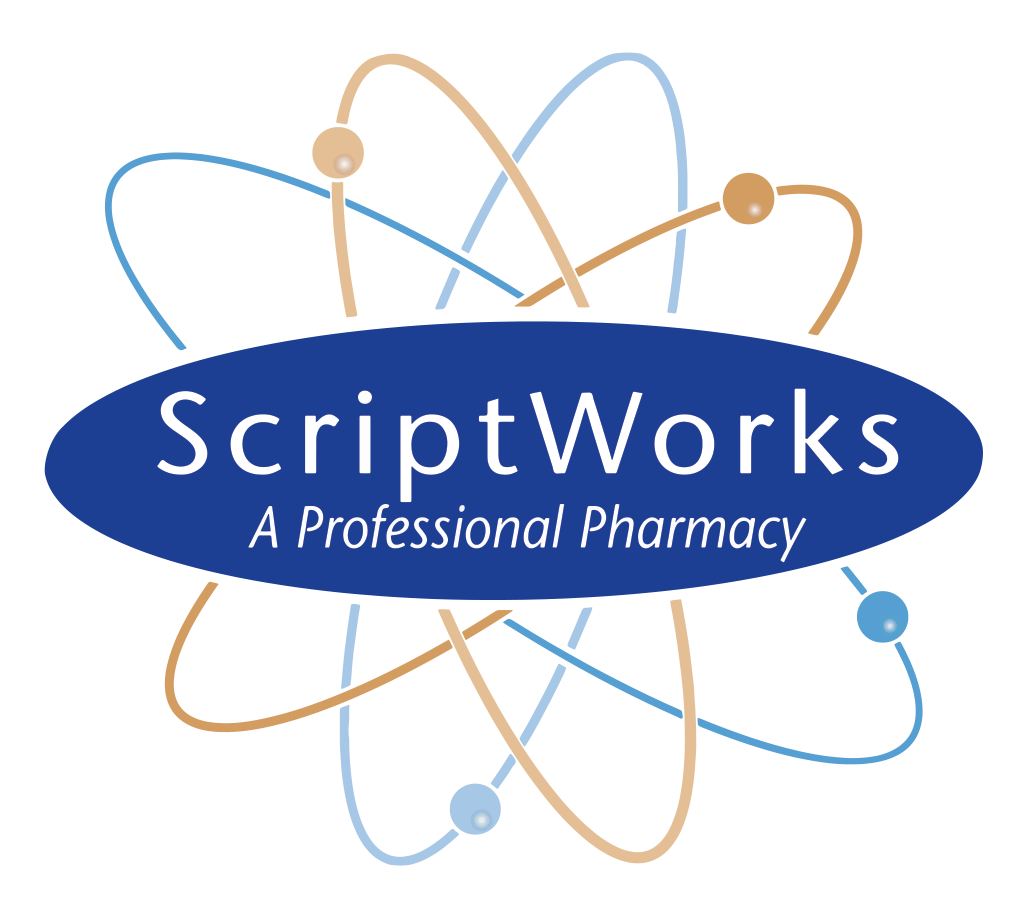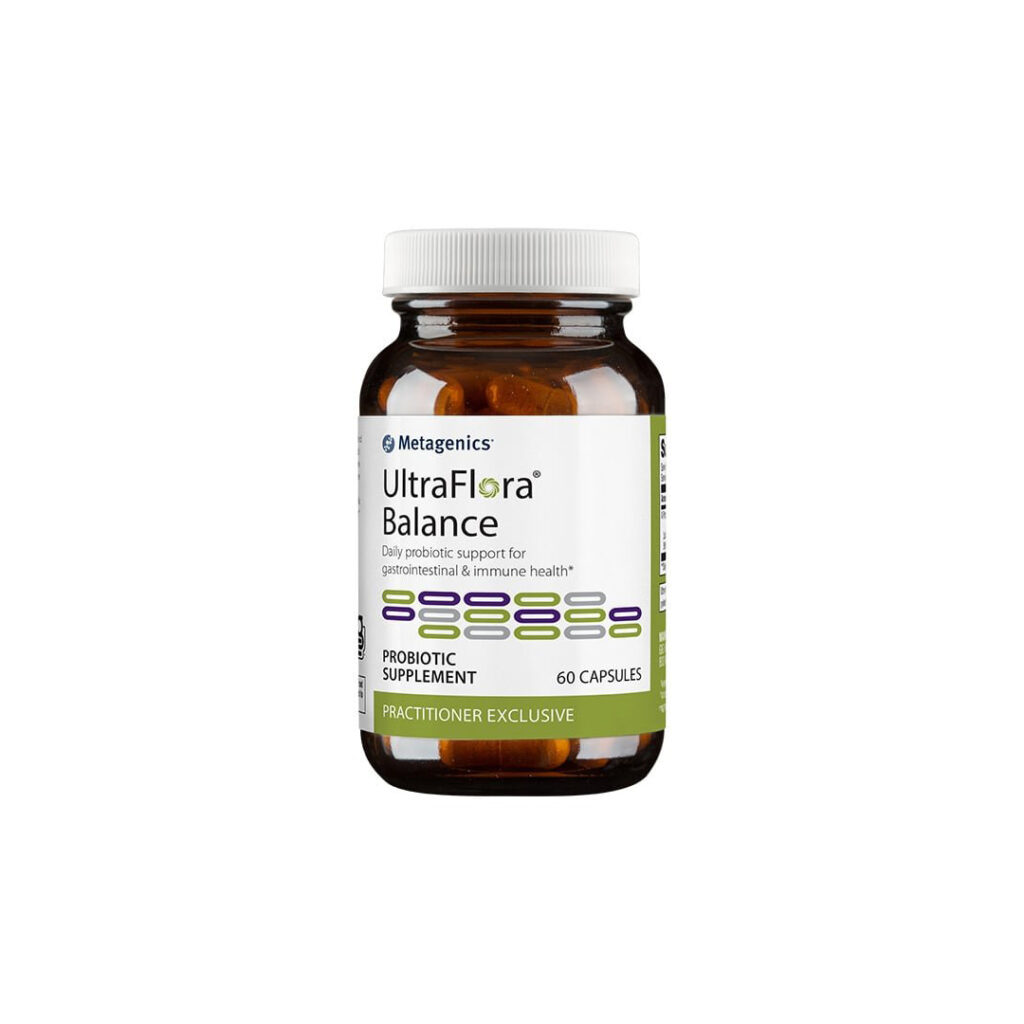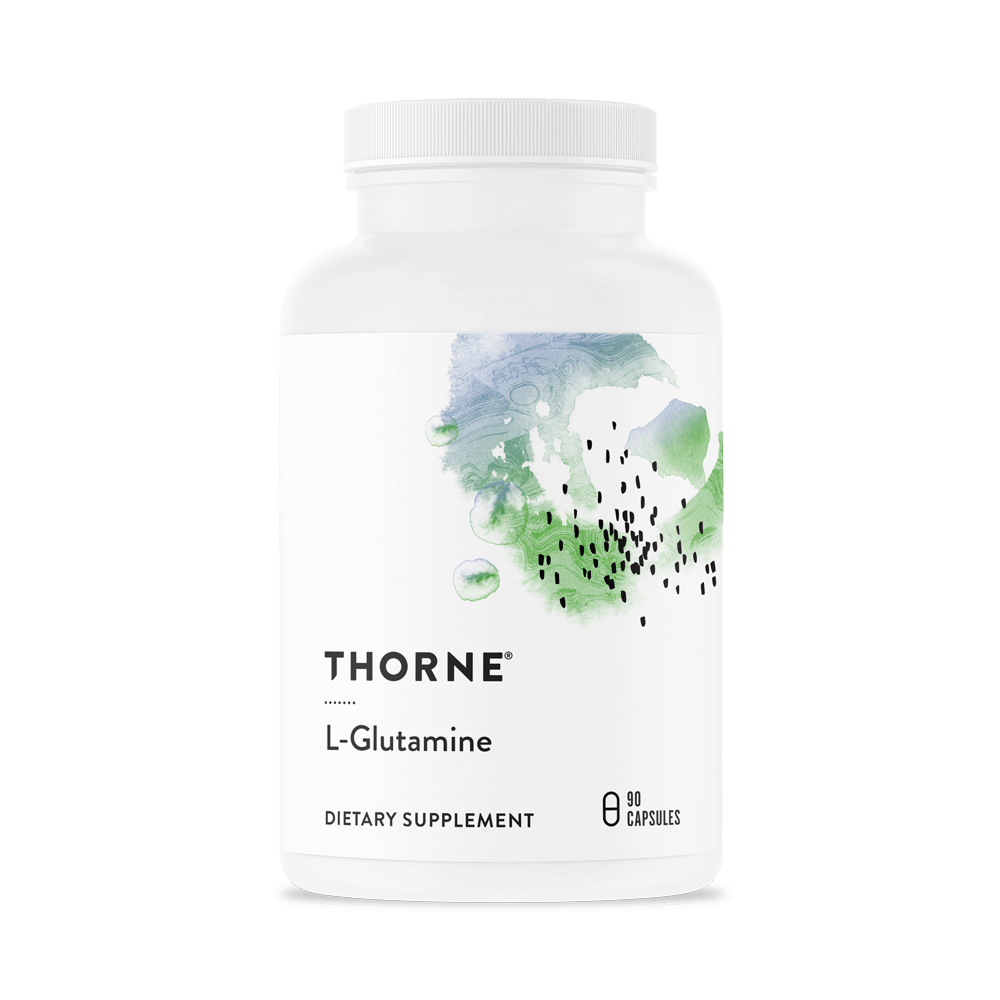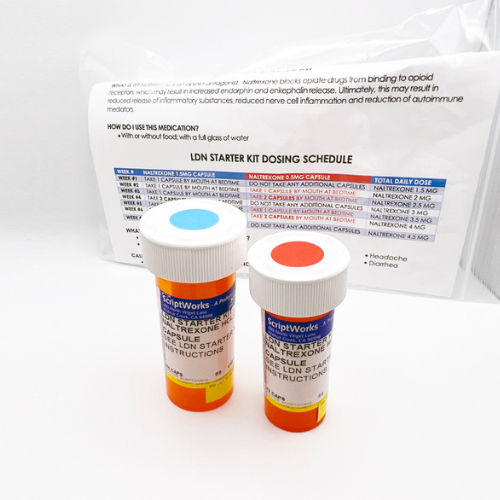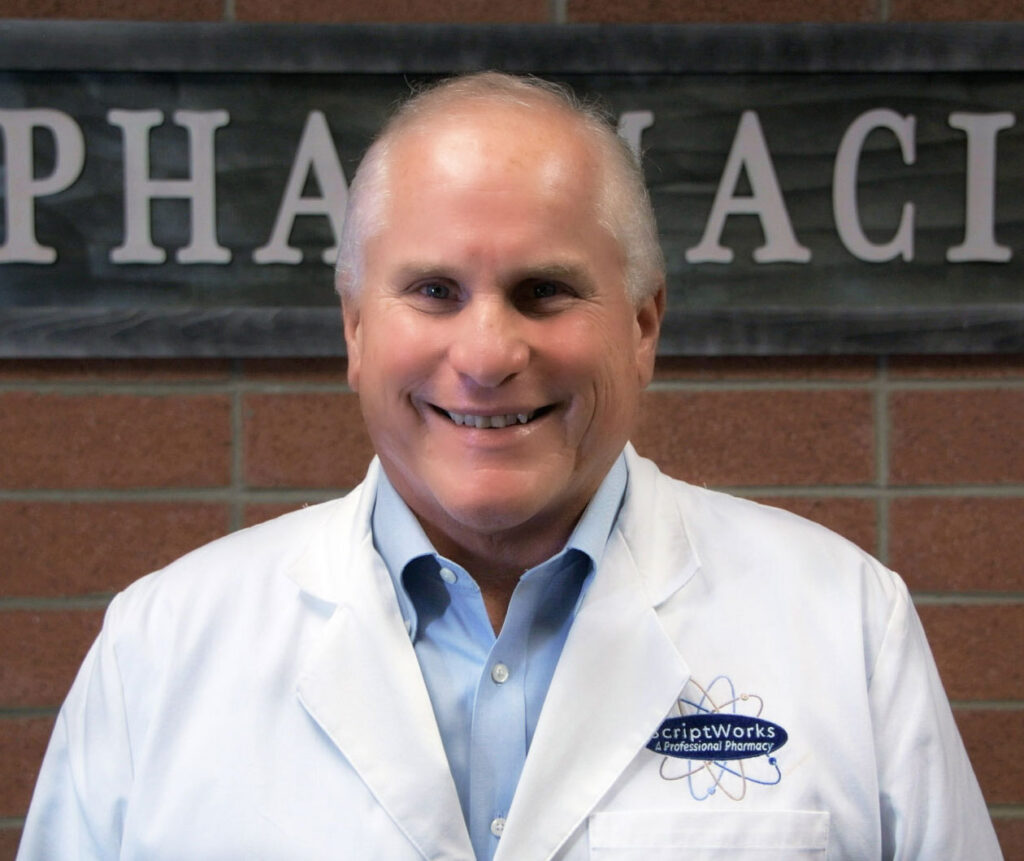
Author: Bob Brensel | President, Pharmacist | ScriptWorks
Bob Brensel, RPh, earned his Pharmacy Degree at University of the Pacific in Stockton, California in 1980. Former California Pharmacists Association’s Award Winner for Recognition of Outstanding Achievement in Compounding Pharmacy. Read More →
Thyroid Hormones and Their Role
The thyroid gland plays a central role in energy production and influences many aspects of daily life. When thyroid function is impaired, it can lead to serious health challenges. Many patients undergoing thyroid replacement therapy (TRT) still struggle to feel well.

The thyroid gland produces three key hormones: triiodothyronine (T3), thyroxine (T4), and calcitonin.
The hypothalamus and pituitary gland control the production and regulation of T3 and T4. The hypothalamus releases thyrotropin-releasing hormones (TRH), which signal the pituitary to release thyroid-stimulating hormones (TSH). TSH then stimulates the thyroid to produce and release T4 and T3, which travel through the bloodstream to affect cells throughout the body.
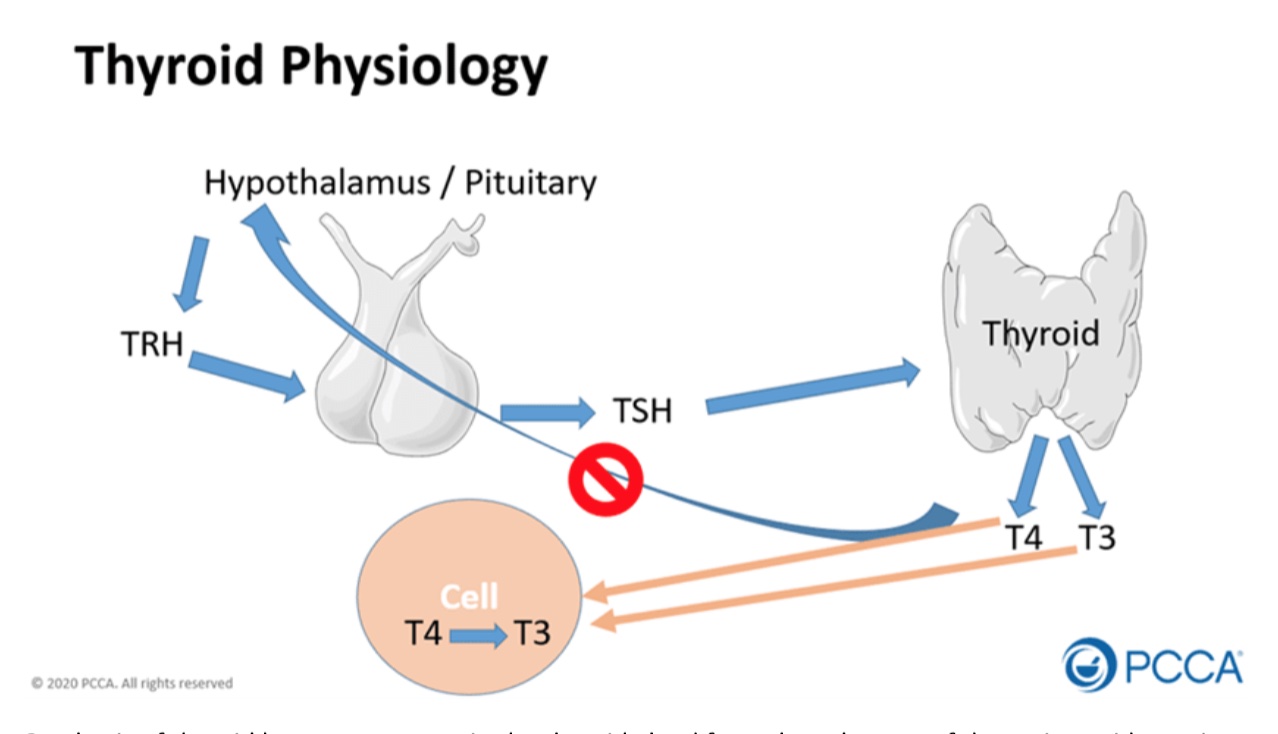
Source: PCCA
TSH levels help indicate how the body responds to these hormones. Elevated TSH levels typically suggest low levels of thyroid hormones, commonly referred to as hypothyroidism, while low TSH levels often indicate hyperthyroidism, where the thyroid is overactive.
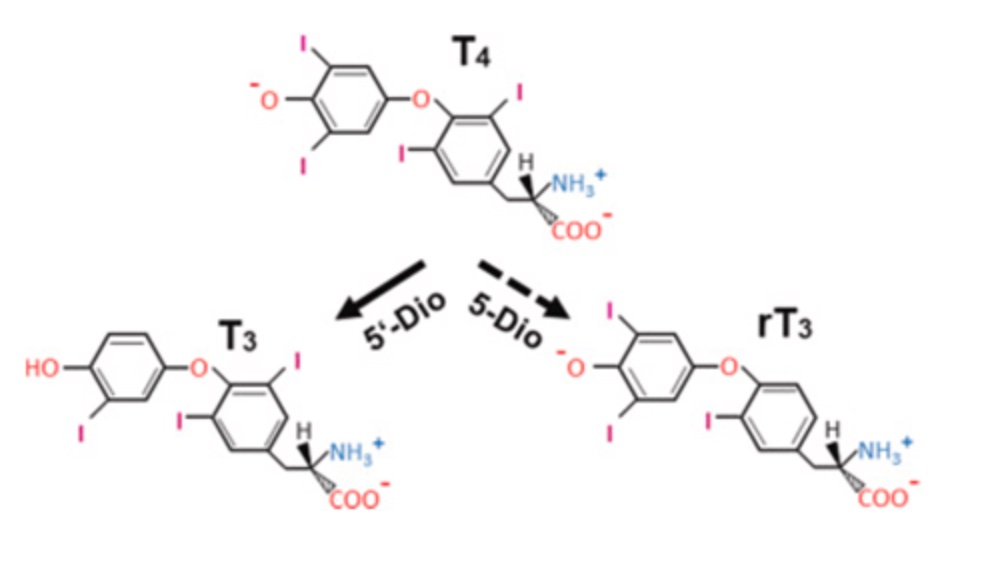
Source: PCCA
Thyroid Hormones Synthesis
Thyroid hormone synthesis requires the amino acid tyrosine and iodine. Thyroglobulin (TG), a large protein, provides the structure for this process. Ingested iodide is absorbed by the thyroid, where it undergoes a series of reactions, ultimately forming T4 and T3. T4 serves as the precursor for T3, which is the more active hormone. In some cases, T4 is converted into reverse T3 (rT3), an inactive form, which plays a role in controlling energy production, especially under stress.
In the mitochondria, T3 is crucial for energy production. If T3 levels are inadequate, ATP production slows down, and body temperature drops, resulting in hypothyroidism. Patients who cannot efficiently convert T4 into T3 may require both hormones in their therapy. Factors like low selenium or low ferritin (iron storage) can also impair this conversion, which is more common in women due to iron loss during menstruation.
Autoimmune Thyroid Conditions
Hashimoto's Thyroiditis (HT)
In Hashimoto’s Thyroiditis — or Hashimoto’s Disease — the immune system attacks thyroid tissues, often leading to decreased hormone production over time. This can start with a temporary increase in thyroid hormone release, but it eventually results in hypothyroidism. Women are significantly more affected by this condition than men, and once hormone levels decline, lifelong supplementation may be required.
Graves’ Disease (GD)
Graves’ Disease is the most common cause of hyperthyroidism and occurs when autoantibodies stimulate the thyroid to produce excessive hormones. This can lead to an enlarged thyroid (goiter), eye problems, and bone loss. Addressing Graves’ often includes medications, and in some cases, surgery or radioactive iodine therapy to remove or disable the thyroid gland. Women are more likely to develop Graves’ than men, with the condition often appearing between the ages of 20 and 50.
Thyroid Options and Challenges
Prescribers often request compounded T4 alone, T4 and T3 combinations or T3 dosages not commercially available that may be used in combination with commercial T4 products. Prescribers may choose sustained-release capsule formulation or immediate-release capsules. Many patients with inflamed GI tracts may have poor absorption of thyroid hormone. These patients might get prescriptions for prompt (immediate) release formulation for a potentially better clinical outcome. Other patients may have side effects from prompt release of T3 but can tolerate a sustained-release capsule better.
Another compounding option is Thyroid USP from the desiccated porcine thyroid gland, which contains both T4 and T3 along with calcitonin and iodine in trace amounts. Some patients for symptomatic control may favor this full complement of hormones. The ratio of T4 to T3 in porcine thyroid is roughly 4.2:1. Immediate-release capsule formulas are the most commonly compounded.
Addressing Underlying Conditions
When patients begin thyroid hormone therapy, it’s crucial to also consider the root cause of their autoimmune condition. Often, by the time therapy is necessary, the underlying immune dysfunction has not been addressed. There is growing evidence that gut health plays a significant role in thyroid diseases, particularly in Hashimoto’s. Dysbiosis, bacterial overgrowth, and increased intestinal permeability may all contribute to thyroid dysfunction.
Adopting certain dietary changes, such as avoiding inflammatory foods like gluten, may improve thyroid function and reduce inflammation. Gut restoration protocols that include probiotics and supplements such as L-glutamine may support intestinal healing and improve outcomes. Low-dose naltrexone (LDN) therapy may also show potential in reducing gut inflammation and support immune health.
California Thyroid Disease Specialist
Managing Thyroid Replacement Therapy (TRT)
For those struggling to maintain optimal thyroid levels, managing the condition can be challenging. Patients and healthcare providers may benefit from collaborative support and guidance on dosage adjustments, lab results, and overall care strategies. Contact ScriptWorks Pharmacy for help with dosage recommendations and other concerns.
Pharmacists also recommend:
UltraFlora® Balance Probiotic
*This is an over-the-counter product. A prescription is not required.
UltraFlora® Balance provides a dairy-free base for a blend of highly viable, pure strains of L. acidophilus NCFM® and B. lactis Bi-07® — “friendly” bacteria that help support a healthy intestinal environment and immune health.
Low Dose Naltrexone (LDN) capsules
*Needs a prescription
Low Dose Naltrexone (LDN) is a novel approach to decrease the release of inflammatory substances, reduce nerve cell inflammation and autoimmune mediators.
Product Details
Dosages available in
- Low Dose Naltrexone 0.5mg Capsules
- Low Dose Naltrexone 4.5mg Capsules
References
- Rousset, B., Dupuy, C., Miot, F., & Dumont, J. (2015). Chapter 2 Thyroid Hormone Synthesis And Secretion. In K. R. Feingold (Eds.) et. al., Endotext. MDText.com, Inc. Accessed 2024 at
https://pubmed.ncbi.nlm.nih.gov/25905405/ - KÖhrle, J., Frädrich, C. (2022) Deiodinasees control local cellular and systemic thyroid hormone availability. Free Radical Biology and Medicine, 193:1. Open access publication. Accessed 2024 at https://www.sciencedirect.com/science/article/pii/
S0891584922006062#fig1 - NIH National Library of Medicine, (updated 2020) Hashimoto’s Disease. Accessed 2024 at https://medlineplus.gov/genetics/condition/hashimotos-disease/#resources
- Pokhrel, B., & Bhusal, K. (2023). Graves Disease. In StatPearls. StatPearls Publishing. Accessed 2024 at https://www.ncbi.nlm.nih.gov/books/NBK448195/
- Liu, H., Lu, M., Hu, J., et al. (2023). Medications and Food Interfering with the Bioavailability of Levothyroxine: A Systematic Review. Thera Clin Risk Manag. 19, 503–523. Accessed 2024 at https://doi.org/10.2147/TCRM.S414460
- Fröhlich, E., & Wahl, R. (2019). Microbiota and Thyroid Interaction in Health and Disease. Trends in endocrinology and metabolism: TEM, 30(8), 479–490. Accessed 2024 at https://doi.org/10.1016/j.tem.2019.05.008
- Knezevic, J., Starchl, C., Tmava Berisha, A., et al. (2020). Thyroid-Gut-Axis: How Does the Microbiota Influence Thyroid Function?. Nutrients, 12(6), 1769. Accessed 2024 at https://doi.org/10.3390/nu12061769
- Piticchio, T., Frasca, F., Malandrino, P., et al. (2023). Effect of gluten-free diet on autoimmune thyroiditis progression in patients with no symptoms or histology of celiac disease: a meta-analysis. Frontiers in endocrinology, 14, 1200372. Accessed 2024 at https://doi.org/10.3389/fendo.2023.1200372
